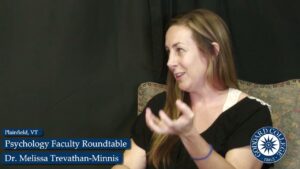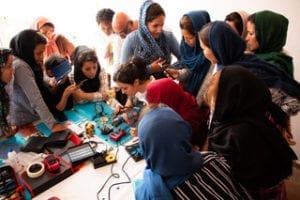 Gaining: The Truth about Life after Eating Disorders by Goddard MFA faculty member Aimee Liu is a classic on the subject of eating disorders. Read our interview with Aimee!
Gaining: The Truth about Life after Eating Disorders by Goddard MFA faculty member Aimee Liu is a classic on the subject of eating disorders. Read our interview with Aimee!
http://www.barnesandnoble.com/w/gaining-aimee-liu/1112492800?ean=9780759518421
http://www.gainingthetruth.com/
A: While none of my fiction has dealt explicitly with eating disorders, my stories usually revolve around issues of identity and the quest for a solid sense of self. We write what we know! My main characters have had a variety of obsessions, but all have been temperamentally intense and persistent. These qualities, I understand now, are related to the same qualities that once underscored my anorexia.
Q: How is GAINING a sequel to your very first book, Solitaire, which was also the first-ever memoir about anorexia?
A: In GAINING, I trace my personal story forward from the turning point that concluded Solitaire way back in 1979. What I could not explain all those years ago was how one recovers. So in Gaining I follow up with my anorexic and bulimic classmates from those days to see how their lives have unfolded. I also meet with some of the world’s leading eating disorder researchers to find out what science knows now that we didn’t know then.
I consider my book a sort of nonfiction mystery: it reveals, finally, why my friends and I so willingly surrendered to our tormenting obsessions all those years ago, how we freed ourselves, and what shadows of our self-destruction still linger, even decades after the fact.
Q: What was your most surprising discovery during your research?
A: I’ve long observed that people with histories of anorexia and bulimia share certain personality traits, but I assumed the parallels were due to similar family dynamics, or cultural conditioning, or the physiological effects of the eating disorders. I was astonished to learn that the reason for these similarities is genetic. Not everyone is equally susceptible to eating disorders. Our DNA actually plays a greater role than fashion’s emphasis on thinness or fad diets.
Q: You interviewed more than 40 women – and men – of various ages, sexual preferences, and ethnicities. How did you get them to talk intimately about such a personal issue?
A: Not everyone I contacted from my youth was willing to talk, and few were willing to be interviewed on the record. There is still such shame associated with these illnesses. I find this very sad. It’s comparable to people with diabetes or a familial predisposition to cancer being ashamed of their illness. Eating disorders are biologically based illnesses, yet the common perception is still that the anorexic or bulimic is somehow at fault – as if she chooses to be sick.
To get people to open up for this book, I promised anonymity, which included changing the identifying details of their lives. They were further encouraged when they realized how many core habits, perceptions, and struggles we had shared throughout our lives. Even in their forties, some of my interviewees still suffered from the belief that they alone shied away from intimacy, or were terrified by conflict, or felt trapped by the compulsion to be perfect, or turned to weight loss as a form of comfort when under intense stress. The recognition that they were not alone was a powerful incentive to share their stories in GAINING, as was our shared hope that the book could help others.
Q: You also talked to researchers all over the world about their discoveries about eating disorders. How did you gain access to them? Was it a challenge to translate their work into layman’s terms for the book?
A: Eating disorder research is a relatively small but growing and fascinating field. I found most of these busy scientists eager to talk about their findings. They want to spread the word that our understanding of these disorders is dramatically changing. So I attended their conferences, interviewed them at their offices, studied their published papers. I was grateful for the years I’d spent co-authoring books on child development and other psychological topics! That background helped me decipher the sometimes daunting scientific language.
But what fueled me was my own need to understand how this new information related to my history and to the stories my subjects were relating to me. How did the new science change my old assumptions about eating disorders? When viewed through this new lens, what could my history of anorexia teach me about myself now? These were the questions that urged me forward. I was tremendously gratified by the endorsements of the researchers who reviewed my completed manuscript before publication, and particularly by my subsequent appointment to the newly formed Advisory Board of the Academy for Eating Disorders.
Q: Why should someone who has never suffered from anorexia or bulimia read your book?
A: Most of us have friends, colleagues, or family members who struggle with eating disorders. GAINING is an attempt to make sense of their behavior – behavior that, on the surface, makes no sense or is downright perverse. My hope is that the insights readers gain will empower them as friends, teachers, doctors, or relatives to get those who are suffering the help they need.
Beyond such specific relevance, however, I hope readers will realize that our culture’s preoccupation with superficial looks-based “perfection” has helped to create a psychological cage for millions of gifted and intelligent women and, increasingly, men. Society is deprived of the full energy and talent of anyone who obsesses about whether she is thin or fit or youthful enough to meet the artificial standards set by air-brushed celebrities and supermodels. By unlocking our selves, we unleash our power to change the world. This ultimate message of GAINING applies to us all.







